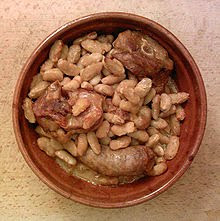Sunday, April 3, 2011
Sunday Dinner in Cockayne
Why don’t we feature food more centrally in speculative fiction?
I do not mean mere descriptions of food, of which the genre abounds. Hobbits are always hungry, the students at Hogwarts enjoy their butterbeer, Cugel the Clever dines on some intriguing dishes in the Dying Earth, and so on. Steven Brust, Jo Walton, and Anne McCaffrey, among others, make the food in their invented worlds something you would like to find in your neighborhood bistro.
I mean rather a focus on food as an end in itself, not as a tool to build a world or adorn an exotic setting. I want food as the central element in the plot, food as a synecdoche for the culture the author is conjuring forth, food as the means to understand the soul of the protagonist. Think the Turkish Delight with which The White Witch snares Edmund. Think Swelter's kitchen-realm in Gormenghast. "Eat me, drink me" in Wonderland.
I want the definition, preparation and delectation of food as an object of philosophy, aesthetics and desire. Food as Brillat-Savarin wrote of it, as M.F.K. Fisher wrote it, as Lidia Bastianich writes, Madhur Jaffrey, Marcella Hazan, Patricia Wells. Food as fantasy itself, not as an ingredient in a fantasy.
For a sense of what I want, check out two newish literary/philosophical magazines about food: Gastronomica and Alimentum . In their pages we live within food as Persephone tastes it in Hades, as Grendel experiences it looking in at Hrothgar’s meadhall, as the banquet-goers savor it in Gabriel Axel’s film Babette’s Feast (“Caille en sarcophage avec sauce perigourdine”!), as the “boeuf en daube” conducts the action in To the Lighthouse, as the timbale summarizes an entire way of life in The Leopard (“The burnished gold of the crusts, the fragrance of sugar and cinnamon they exuded, were but preludes to the delights released from the interior when the knife broke the crust,” in Archibald Colquhoun’s translation).
Subscribe to:
Post Comments (Atom)





No comments:
Post a Comment